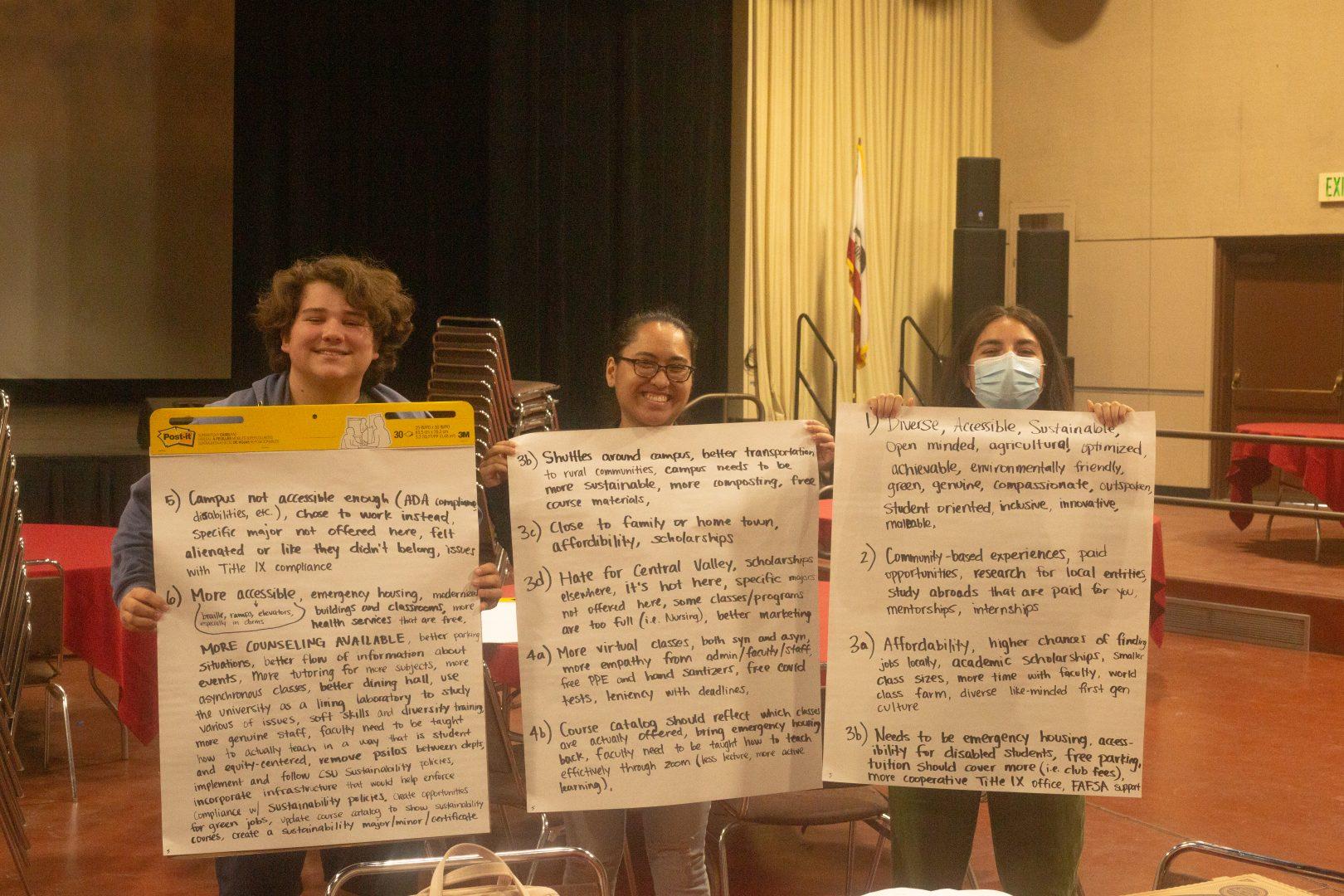Fresno State recently hosted its “2023-2028 Strategic Plan Town Hall” in which faculty, staff and students shared their thoughts on what should be the university’s goals for the next five years.
On Sept. 19, the Satellite Student Union (SSU) was packed for the faculty and staff town hall. Tenured professors, deans and Fresno State’s presidential cabinet attended the event. However, during the student town hall on the next day, only a couple of tables were filled.
“Not a lot of people came, and I wish more people would come to stuff like this so that we can take it more seriously… Because this type of stuff is really important. It directly impacts us,” said Nadia Cortés, a Fresno State student majoring in mechanical engineering.
Cortés was one of many student attendees who felt like they didn’t know what the strategic plan was or whether or not their voices were being heard.
The 2023-2028 Strategic Plan is Fresno State’s goal to boost university recognition and to set specific priorities for campus improvement.
Due to COVID-19, Fresno State extended its previous five-year plan from 2016 to 2022, according to its website. Now, the university has hired an outside consultant, Sal Rinella, to help create the next strategic plan. Fresno State’s University Advancement will coordinate the plan under its vice president, Paula Castadio.
“This project is all about drawing from areas of strength, progress and opportunity… it’s really the equivalent of New Year’s resolutions,” Rinella said
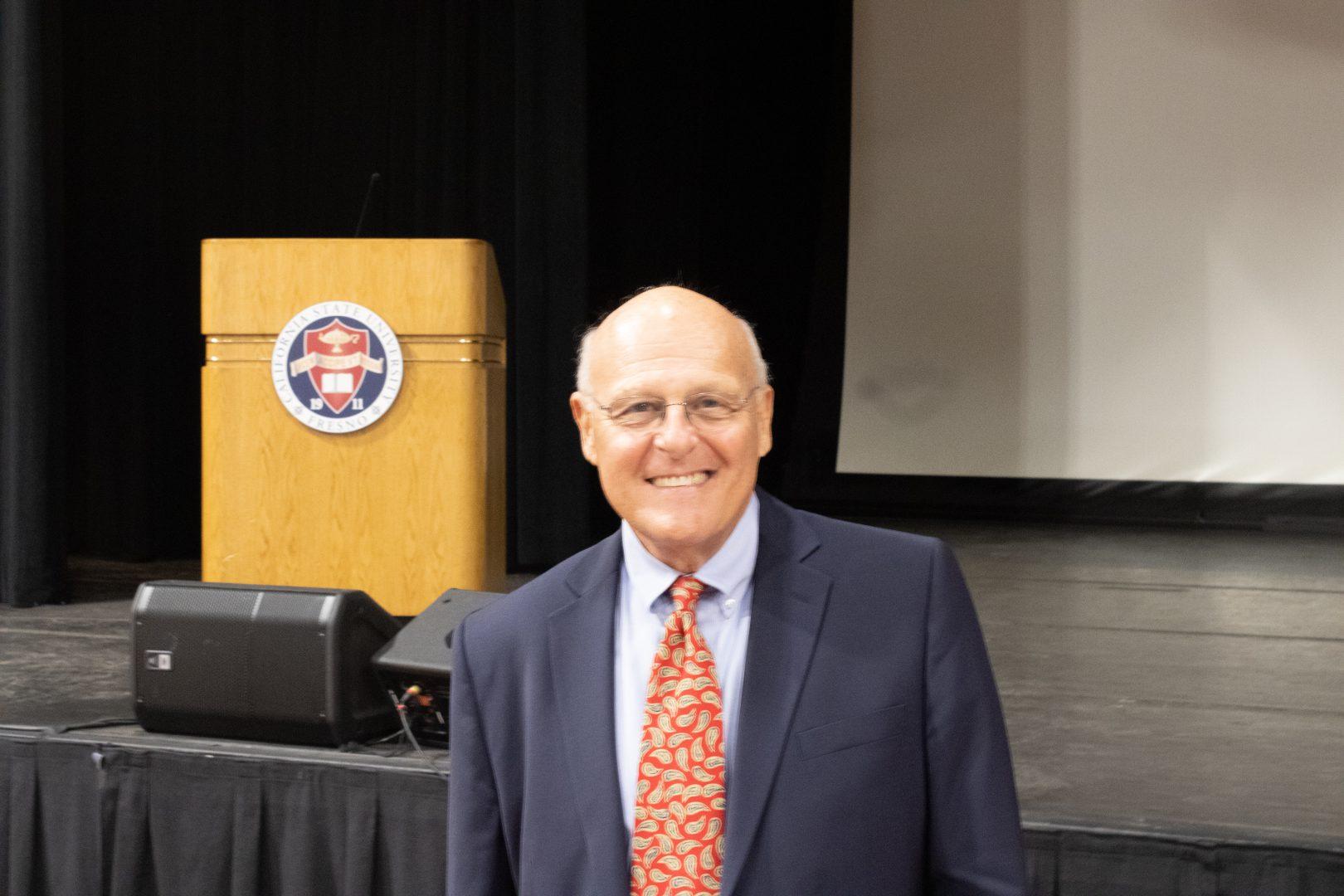
The town halls divided people into small groups to discuss how Fresno State should market itself, how to attract potential students and what areas the school should improve upon or prioritize.
Faculty and staff had an extra hour to break down the strategic plan and had access to the plan’s timeline during their town hall, unlike students, Rinella said.
After data was collected during the small group discussions, the goals for the upcoming strategic plan will be established using the data. By January 2023, subcommittees consisting of faculty, staff and students will be created to work toward those goals.
The complete strategic plan will be implemented by fall 2023, according to Rinella.
“The subcommittees are going to play the biggest role and actually set the targets and the criteria for measuring when the target is met,” Rinella said.
Students at the town hall did not have time to learn about the subcommittees or timeline. Despite the smaller crowd and shorter time, students did seem to enjoy sharing their ideas.
“I got a lot of opinions and input on things I didn’t think about, concerning some of the topics we have discussed,” said Roberto Gutierrez III, a freshman majoring in biology. “I do wish a lot more students had come… but overall it was pretty good.”
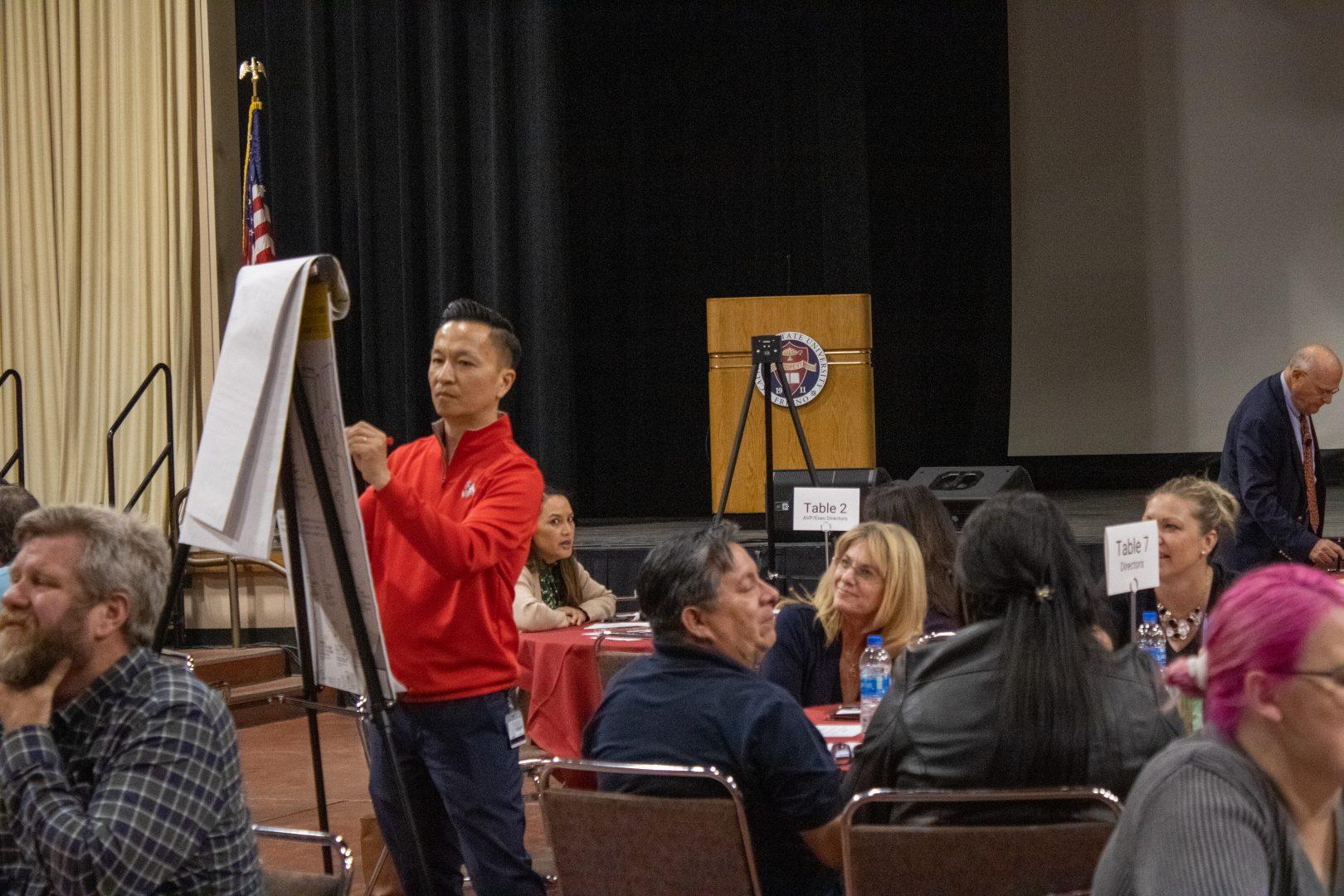
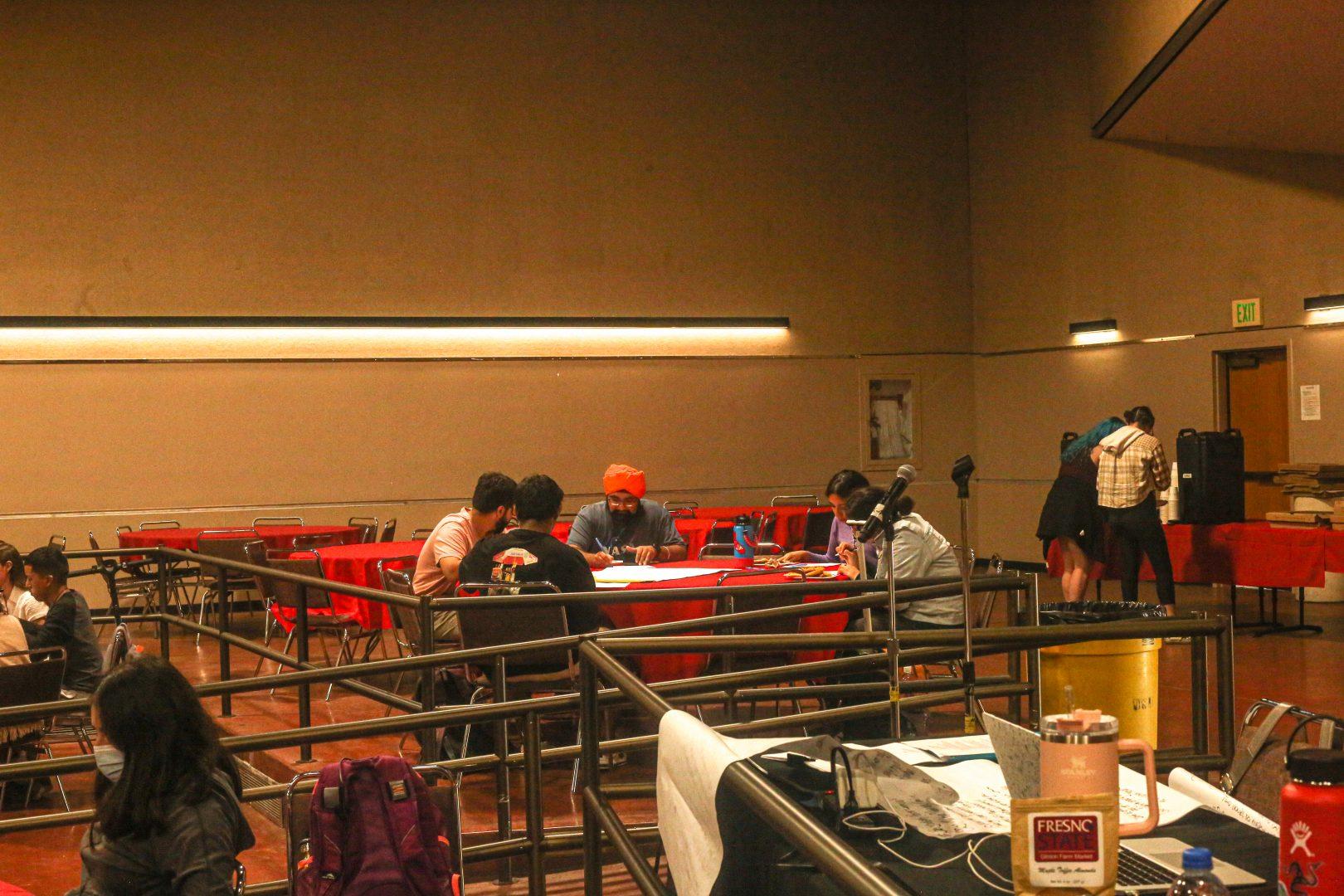
Both town halls discussed similar topics. Fresno State was described as diverse, accessible and affordable by faculty, staff and students who also said more work could be done on parking and refurbishing older buildings and classrooms.
In the faculty and staff town hall, attendees said they wished for more support for people of color and women. They also expressed their frustration with Assembly Bill 1887, which prohibits state-funded travel to states with discriminatory laws.
Faculty and staff also said Facilities Management has been unresponsive to their needs. They noted that the Diversity, Equity and Inclusion (DEI) initiative should be what sets Fresno State apart from other schools, with a campaign on anti-racism.
For the student town hall, students said more efforts should be made toward sustainability and environmental issues. They also said school resources, from textbooks to medication, should be free, and that more on-campus events should be free as well. It was discussed that the Title IX Office should be more accessible, as well as therapy sessions.
Feng Teter, a Fresno State master’s student in the geology program, said events like the student town hall need to be better promoted. She expected the event to be more like an open forum and was disappointed she couldn’t talk to administrators or Rinella, Teter said.
“The fact that they’re not here kind of makes me feel like they don’t care what we have to say,” she added.
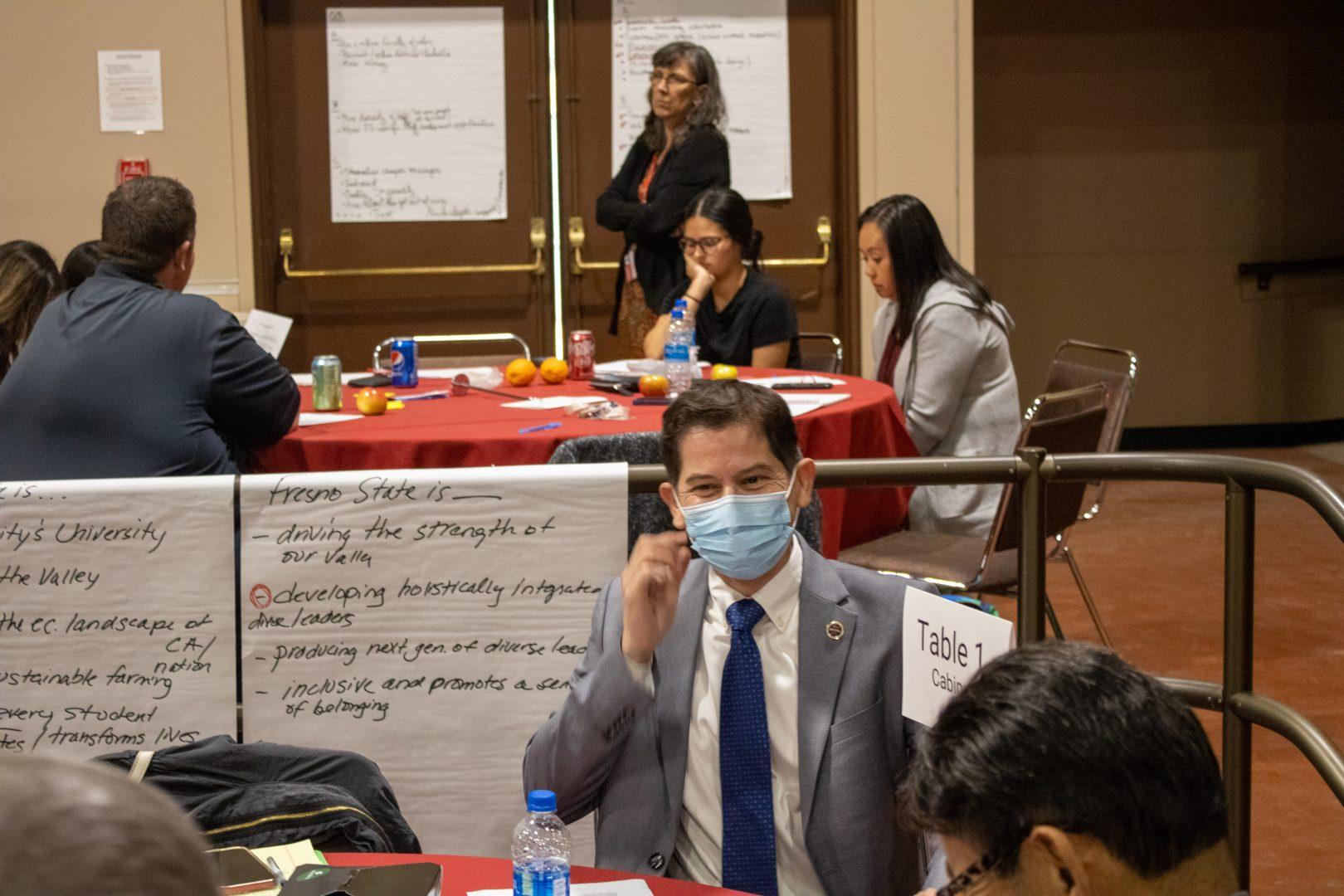
Teter said she did like the close discussions and being able to talk to more students, but felt having administrators present would have given her more reassurance.
Rinella said the separation was intentional to prevent students from feeling pressured by the presence of administrators. However, Teter, Gutierrez III and Cortés didn’t know their work was going to the Fresno State’s president’s office until the event ended.
“I think, overall, I do believe my voice was heard, but there was also probably a better method,” Gutierrez III said.
Castadio and Rinella want to reassure the students that their voices will be heard.
“Students, this is your university. So you have the opportunity to not only shape it right but for the next five years. Putting your mark on that, I think, is really essential, so I hope the students take that seriously,” Castadio said.
Rinella said to trust the process and that due to time constraints, the student town hall was more about gaining student perspective than having an in-depth presentation. However, he said everybody’s voice is contributing to the plan, and the biggest reassurance is the support from Fresno State President Saúl Jiménez-Sandoval.
“It ultimately comes down to the commitment of the president, and the president is absolutely committed to this being a top-down, bottom-up process,” Rinella said.
For more information on the 2023-2028 Strategic Plan, students can access the Office of the President’s website. Students can also fill out a survey and watch the introduction video if they missed the student town hall.




